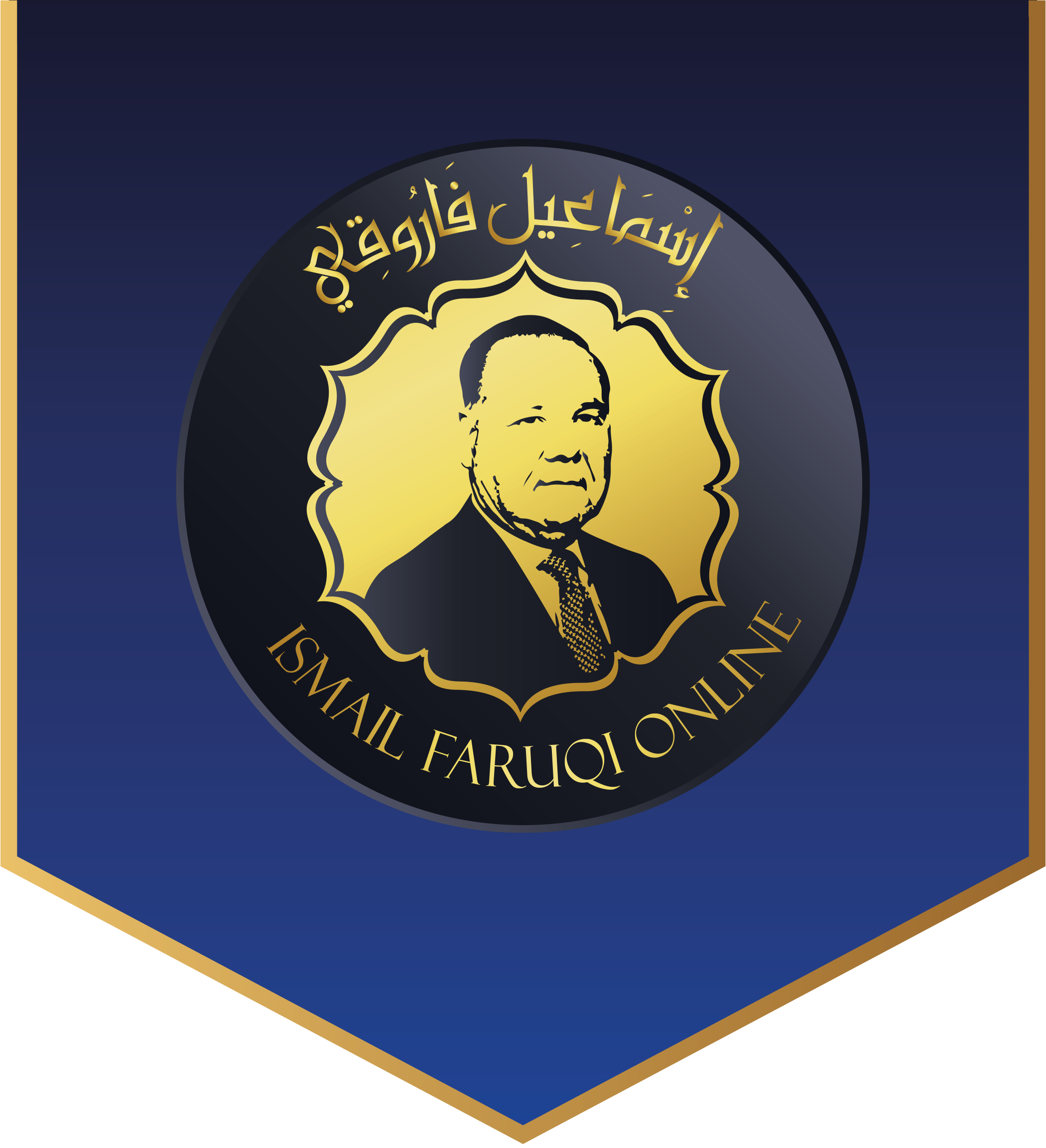Islam: A Challenge to Religion by Ghulam Ahmad Parwez.
Idara-e-Tulu-e-Islam: Lahore, pp. 392
Review by Isma’il Raji al-Faruqi
The author of this book is famous for his “Abandon of the Hadlth and return to the Qur’an,” the central theme of the Association for the Reemergence of Islam (Tulu-e-Islam) of the last three decades, of which he is the founder. His call has appealed especially to the learned civil servants of Pakistan, who flocked to his durbar in Gulberg (Lahore) every Sunday to hear the teacher expose his views. Anxious, like all Muslim modernists, to break out from under the deposits of centuries of deadening conservatism and Sufism, Parwez sought an anchor for the creativity and dynamism of this generation and found it in the Qur’an if approached in abstraction from the Hadith, the base of most Islamic laws and popular beliefs. His views he elaborated in his 30-volume Qur’anic study, Mafhum-ul-Qur’an and a periodical carrying the name of the movement.
The present work, the author’s first in English, undertakes to substantiate a classic Islamic claim, popularized anew by Muhammad Iqbal, that Islam is “a protest against all religions in the old sense of the term.” The opposition is between Islam as din and as madhhab, or cumulative tradition, which Parwez also calls priestcraft, recalling Khalid Muhammad Khalid’s critique of the 1950s (Min Huna Nabda’). The opposition is equally between Islam as din and the religions of the world, which Parwez surveys under the categories, religion’s idea of itself, of man, divine guidance, divine law, salvation, survival, economic and political order, war and peace, rise and fall of nations, woman, the environment — which are also titles of separate chapters.
Parwez’s forte is not his analyses of the religions, which are anyhow subsidiary to his thesis. Rather, it is in his attempt to separate the core from the chaff in the Islamic tradition. Here, his choice of the term din and its contrast with madhhab is not felicitous. For the Qur’an does apply the former to non-Muslims and makes no use of the latter. The contrast would have been better stated between din (religion), and al-din (the religion, or better still, Ur-Religion). The concept of Ur-Religion is certainly Qur’anic; for the Islamic theory of revelation leaves no room for doubt that God’s religion, which has been repeatedly revealed to mankind and repeatedly distorted, misinterpreted and its Scriptures tampered with by the priests of all nations, has once and for all been communicated in its pristine purity and comprehensiveness to the last of the Prophets, Muhammad.
The core of Islam is, according to Parwez, a system of “permanent values” whose translation into prescriptive legislations admits of infinite variety and creativity, and whose main object is to guide “the conduct of affairs concerning the individual as well as the collective of human beings in order to harness the forces of nature for the development of his own self and the larger community of mankind; (p. 355)… to rid the entire world…of all (its) travails and troubles…(p. 357) and, since “the permanent values” include the moral, to achieve for all men “the very life of Jannah on the earth” as well as in the hereafter (p. 359).
Certainly, this is a welcome contribution to the literature of Islamic modernism and is a representative statement of Muslim modernist thought.
Isma’i’l R. al Faruqi
Temple University

